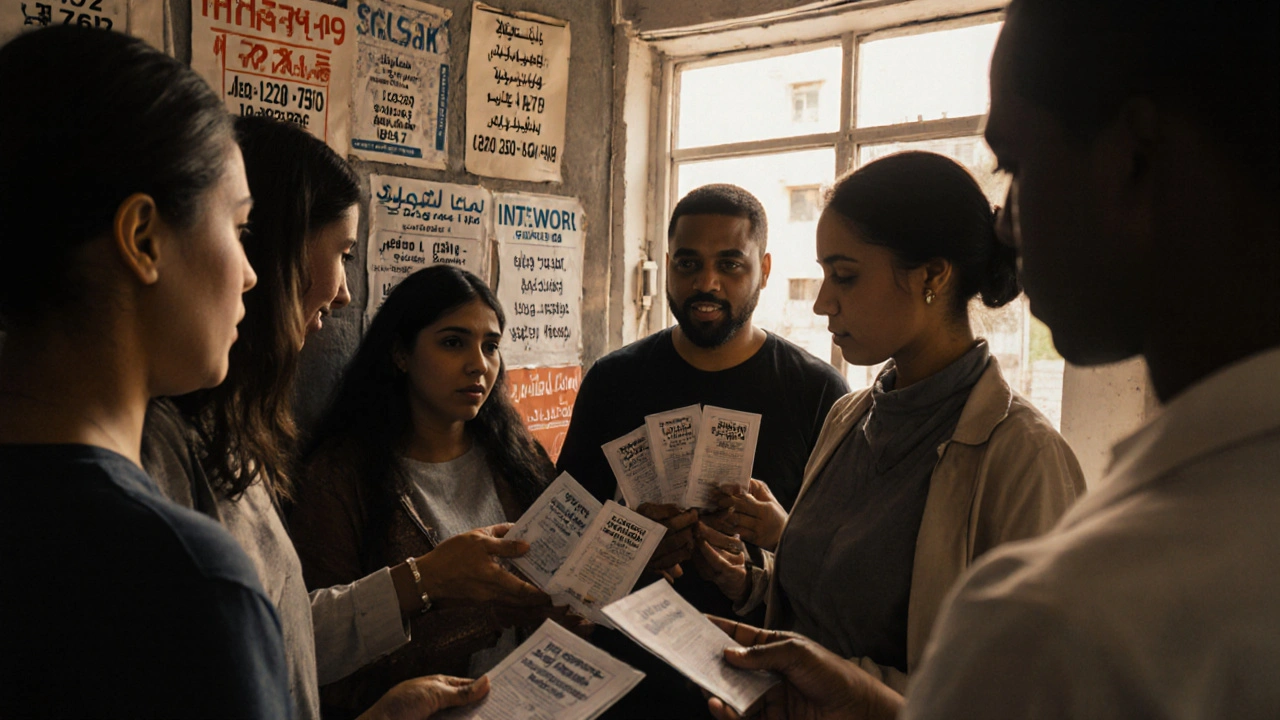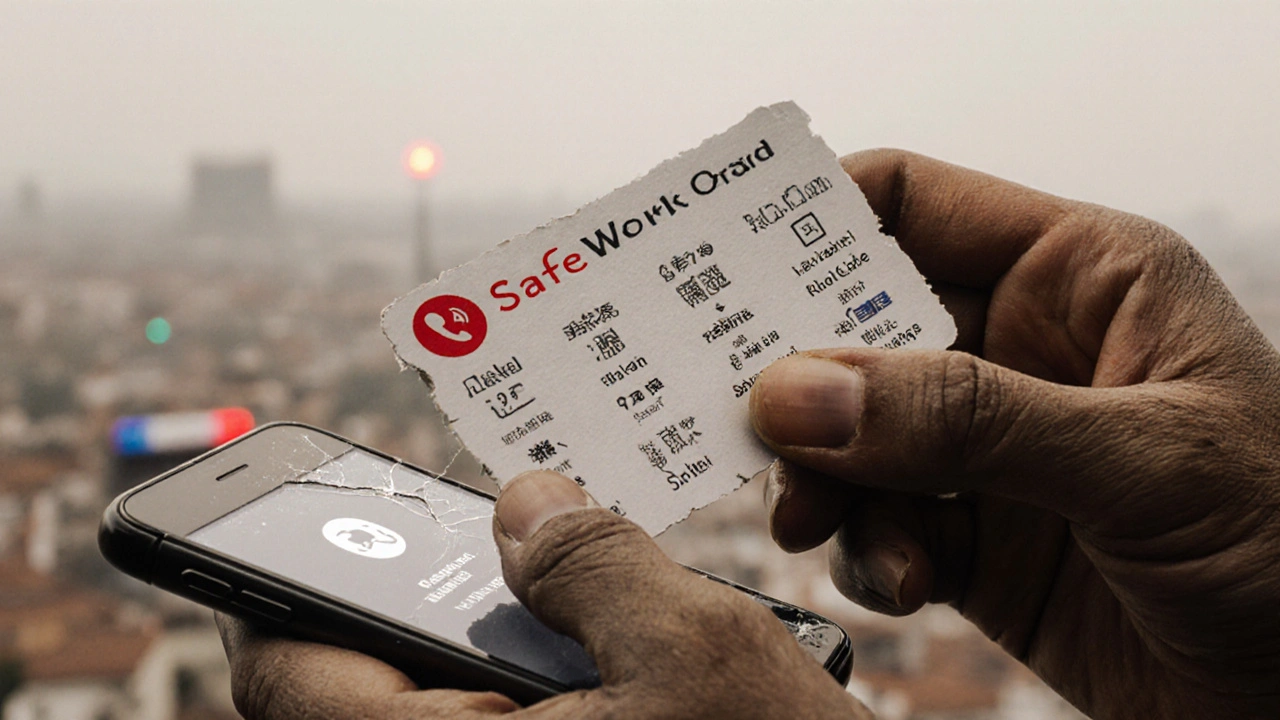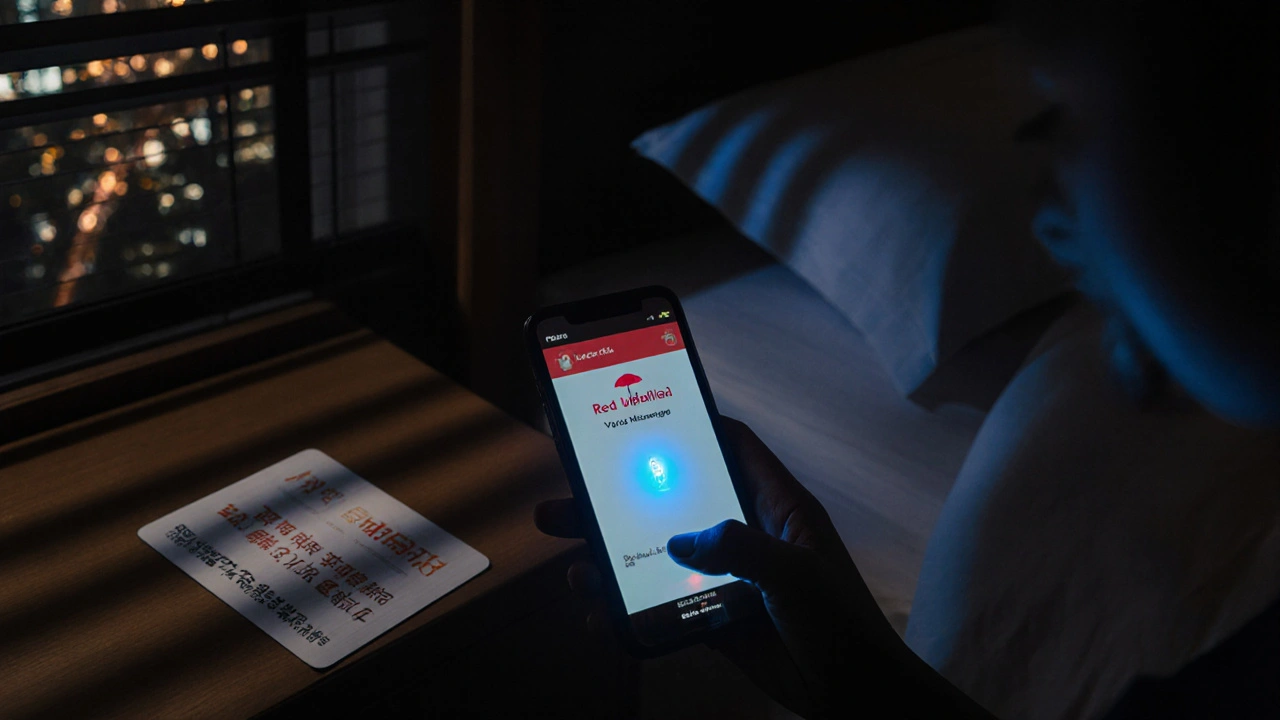When you’re working in a country where you don’t speak the local language, every interaction becomes a risk. A misunderstanding with a client, a misheard address, or not being able to call for help in an emergency can turn a routine job into something dangerous. For sex workers who move across borders or work in areas with high migrant populations, language isn’t just a barrier-it’s a lifeline. That’s why multilingual resources aren’t optional. They’re essential for survival.
Why Language Barriers Put Sex Workers at Risk
Studies from the Global Network of Sex Work Projects show that sex workers who don’t speak the local language are 3.5 times more likely to experience violence or exploitation. Why? Because they can’t clearly communicate boundaries, can’t read warning signs in public spaces, and often can’t access emergency services when needed. In cities like Bangkok, Berlin, or Mexico City, where migrant sex workers make up a large part of the workforce, language gaps create blind spots in safety networks.
Imagine being alone in a hotel room, feeling unsafe, and needing to call the police-but you only speak Tagalog or Russian. The dispatcher doesn’t understand you. You’re stuck. That’s not hypothetical. It happens every day.
What Multilingual Resources Actually Exist
There are real tools, built by sex worker collectives and human rights groups, that bridge this gap. These aren’t government brochures or translated pamphlets. They’re apps, hotlines, and community-led platforms designed by people who’ve lived the experience.
- Red Umbrella Fund’s Safety App offers voice-to-text alerts in 12 languages, including Arabic, Farsi, Thai, and Portuguese. You can record a voice note saying “I need help” and it sends your location and message to trusted contacts.
- SWAN (Sex Worker Advocacy Network) runs a 24/7 multilingual hotline staffed by former sex workers. Operators speak 18 languages, from Ukrainian to Vietnamese, and can connect you to local legal aid or medical services.
- SafeWork Cards are physical cards you can hand to clients or police. Printed in six languages, they say: “I am a sex worker. I consent to this. I do not consent to violence.” They’re distributed in border towns, airports, and migrant hubs.
These tools aren’t perfect, but they’re the only ones that actually work in real-world situations. They’re designed for low-tech access-no app store needed, no internet required for the cards, and voice messages that work on basic phones.
How to Use These Resources Effectively
Having access isn’t enough. You need to know how to use it before you need it.
- Save the hotline number in your phone under a fake name-like “Dentist” or “Sister.” Don’t label it as “sex work help.”
- Carry at least one SafeWork Card in your wallet or phone case. Keep it flat so it doesn’t tear. If you’re in a new city, ask at a migrant center or community clinic for a local version.
- Practice saying key phrases in the local language. Even five words-“No,” “Stop,” “Call police,” “I need help”-can change the outcome. Use Google Translate’s offline mode to save audio clips.
- Share your language resources with others. If you know someone who speaks your language, show them how the app works. Safety grows when it’s shared.

Where to Find These Tools
You won’t find these on Google’s first page. They’re shared through word of mouth, community centers, and underground networks. Here’s where to look:
- Migrant worker centers in major cities often have pamphlets or staff who know about sex worker-specific resources.
- Sex worker-led organizations like SWOP (Sex Workers Outreach Project) in the U.S., La Strada in Eastern Europe, and SWEAT in South Africa offer multilingual support and can connect you to local tools.
- Community clinics that serve undocumented people sometimes have pamphlets or staff trained to assist sex workers, even if they don’t advertise it.
- Facebook groups with names like “Migrant Sex Workers in Spain” or “Thai Workers in Italy” often share updated links to apps and hotlines. Use a burner account if needed.
Don’t wait until you’re in trouble to find these. Look now. Save them. Test them. Make sure they work on your phone, even without Wi-Fi.
What’s Missing-and What You Can Help Build
There are still gaps. Few resources exist for speakers of less common languages like Amharic, Kinyarwanda, or Pashto. Many apps don’t support offline maps or location sharing without a data plan. And most don’t include sign language options.
If you’re multilingual and have experience in this work, you can help. Record a voice message in your language explaining how to use the Red Umbrella app. Translate a SafeWork Card into your native tongue. Share it with your community. You don’t need to be a tech expert. You just need to care enough to pass it on.

Real Stories: How Language Saved Lives
In 2023, a sex worker in Madrid who spoke only Mandarin used the Red Umbrella app to send a voice alert after a client refused to leave. The message was received by a volunteer in the Philippines who spoke Mandarin and immediately called Spanish police. The client was arrested. The worker was safe.
In 2024, a group of Nigerian sex workers in Istanbul created their own version of SafeWork Cards in Igbo and Yoruba. They printed 500 copies and handed them out at bus stations. Within three months, reports of violent incidents dropped by 40% in their area.
These aren’t lucky breaks. They’re the result of language access.
Final Thought: Safety Is a Language You Speak Together
Sex work is never just about money. It’s about dignity, autonomy, and survival. And survival depends on being understood. When you can say “no” in the language the person across from you hears, when you can call for help without stumbling over words, you reclaim power.
Language access isn’t a luxury. It’s the difference between walking away and not walking away at all.
Are multilingual safety resources only for migrant sex workers?
No. While migrant sex workers benefit most from these tools, anyone who feels unsafe due to language barriers can use them. Local workers who grew up speaking a different dialect, or who have limited literacy in the dominant language, also face risks. These resources are for anyone who needs to communicate boundaries clearly, especially under pressure.
Can I use these resources if I’m undocumented?
Yes. None of the major multilingual safety tools require ID, legal status, or personal information. The Red Umbrella app doesn’t store your name. The SWAN hotline doesn’t ask for your passport. These are designed to protect you, not report you. Your privacy is built into the system.
What if I don’t have a smartphone?
You don’t need one. SafeWork Cards are physical and work without power or internet. You can also memorize the hotline number for SWAN or similar services-they’re toll-free and accessible from any phone, even payphones. Some community centers have landlines you can use privately. Ask at a migrant center or clinic for help.
Are these resources free?
Yes. All the tools mentioned-apps, hotlines, cards-are completely free. They’re funded by human rights grants and sex worker collectives. No one will ask you to pay. If someone says you need to pay for safety help, it’s a scam.
How do I know if a resource is trustworthy?
Look for names linked to known sex worker organizations like SWOP, Red Umbrella Fund, or La Strada. Avoid anything that asks for your full name, address, or photos. Real safety tools don’t collect personal data. If you’re unsure, ask someone you trust in the community or reach out to a local advocacy group. They’ll know which ones are safe.
